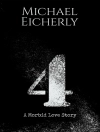In ‘Letters on Demonology and Witchcraft, ‘ Walter Scott delves into the fascinating world of the supernatural as he explores the societal perceptions of witchcraft and demonology during the late 18th and early 19th centuries. Written in an engaging epistolary format, Scott’s letters combine personal reflection with a scholarly examination of folklore, historical accounts, and legal documents surrounding witch hunts. The book not only elucidates the cultural anxieties of its time but also aims to reconcile popular superstition with rational thought, situating itself within the Enlightenment’s quest to understand human nature through a critical lens. Walter Scott, a seminal figure in Scottish literature, was deeply influenced by the rich folklore of his homeland, as well as the tumultuous history of witchcraft trials that ravaged communities in Europe. His creative endeavors often sought to bridge the realms of fiction and history, making the topic of demonology a natural extension of his literary interests. Scott’s own fascination with the human psyche and societal fears ultimately informed his exploration of these themes, resulting in a text that is as enlightening as it is captivating. I highly recommend ‘Letters on Demonology and Witchcraft’ to readers interested in the intersections of literature, history, and cultural studies. Scott’s thought-provoking insights invite readers to reflect on the nature of belief and reason, making the book an essential read for anyone intrigued by the complex tapestry of human thought surrounding the mystical and the macabre.
เกี่ยวกับผู้แต่ง
Sir Walter Scott (1771–1832) was a towering figure in the world of literature, primarily known for his significant contribution to the historical novel genre. As a Scottish historical novelist, poet, playwright, and historian, Scott’s work exerts a profound influence on European literature. His keen interest in the culture and history of Scotland, combined with his outstanding literary talent, produced such classics as ‘Ivanhoe, ‘ ‘Rob Roy, ‘ ‘The Lady of the Lake, ‘ ‘Waverley, ‘ and ‘The Heart of Midlothian.’ Scott had the ability to interweave historical facts with fiction in a manner that had never been done so vividly before. One of his lesser-known works, ‘Letters on Demonology and Witchcraft’ (1830), explores the themes of supernatural folklore and parapsychology, which were topics of considerable interest during his time. Written in the form of letters, the book provides insights into the beliefs of the early 19th century and reflects Scott’s fascination with the historical aspects of demonology. Scott’s mastery in storytelling is evident in his character development, his descriptive landscapes, and his skillful use of narrative to evoke the aura of the periods about which he wrote. His literary style and his contribution to the development of the historical novel have made him not just a beloved author, but a cornerstone in the canon of Western literature.












